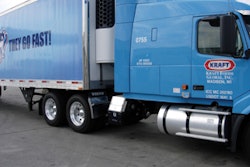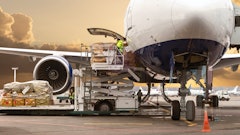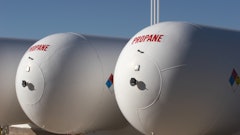While 2011 has been a tremendously challenging year for foodservice fleets of all sizes, 2012 looks to bring more of the same. Fuel costs in 2011 climbed to levels not seen since 2008 with even greater price swings, and a number of severe weather events across the country wreaked havoc on logistical plans. Instability and political events in the Middle East continue to add pressure to supply translating into higher fuel prices and a greater burden on fuel manager budgets. Higher fuel prices have also meant alternative methods of transportation, such as rail, are gaining ground on foodservice fleets.
So what can a fuel manager do to help mitigate these challenges in 2012? Well, certainly there is not much that can be done about the weather, but there are steps managers can take to prepare. First, adopting a diversified supply portfolio based on different indices can lessen the impact of fuel supply shortages or price volatility. Second, in the face of severe weather, a keep-it-full strategy on fuel tanks will allow companies to ride out supply disruptions and satisfy demand swings. To remain operational, fleet-based companies need options when demand becomes unpredictable and supply constrained.
Taking these steps however, is no guarantee as rising and volatile fuel prices along with a down economy will continue to strain budgets. In this light, what additional options do fuel managers have? One that has shown success for other foodservice companies is to outsource fuel management to a third-party; taking advantage of best-in-class processes, people, and technology. Doing so not only ensures the security of fuel supply, but a greater predictability in spend at an overall lower cost.
For those that are not as familiar, outsourced fuel management gives a third-party provider responsibility for optimizing and directing all fuel management activities. These activities include everything from supplier and distributor selection to demand forecasting and ordering to fuel, freight, and tax reconciliation.
When outsourced fuel management is done right, fleet-based companies have more favorable supply agreements in place and gain the advantages of a large fuel buying network. Greater supply options and more sophisticated buying techniques mean lower costs that companies can pass along to their customers. Another important aspect of outsourced fuel management is the ability to leverage the collective experience and best practice expertise that third-party fuel management professionals offer. Coupled with leading-edge technology, the combination is difficult to recreate internally within a company.
With the price movements seen this year and more of the same expected in 2012, there is significant opportunity for savings with a team of experts monitoring them and prepared to take advantage of savings opportunities. An example of this type of expertise in action involves load shifting. This practice takes advantage of daily price movements by either moving a scheduled fuel load up or back to take advantage of the market price volatility. For example, in May of this year, the market came down just over 25 cents in a single day. This kind of fuel price movement presents a significant opportunity for organizations that are prepared to take advantage of it. One FuelQuest customer was able to save $2,125 for every load that was shifted past the price change, resulting in a savings of over $21,000. This might seem an extreme example but even with a movement of 3-5 cents, the savings add up quickly over multiple loads. “There is a silver lining with regards to price volatility”, says Ryan Mossman, vice president and general manager of Fuel Center at FuelQuest. “With great price volatility also comes great opportunity to take advantage of these movements whether the market is going up or down – so long as the right steps are taken.”
Taking control of fuel management by outsourcing to fuel management experts makes a lot of sense in today’s highly volatile and unpredictable fuel market. Bringing greater predictability along with reduced fuel spend will allow foodservice fleets to better control costs and manage to annual budgets. Managing to budget is always important, but given economic predictions for 2012, it is doubly important. Such savings and budget control will make fleets more competitive against alternative transportation methods such as rail. With all the challenges that lie ahead, outsourced fuel management is a strong option for foodservice companies needing an edge to prosper in the New Year.
















